And, indeed, I will ask on my own account here, an idle question: which is better—cheap happiness or exalted sufferings? Well, which is better?---Fyodor Dostoevsky ---Notes from Underground There are certain people of whom it is difficult to say anything which will at once throw them into relief—in other words, describe them graphically in their typical characteristics. These are they who are generally known as “commonplace people,” and this class comprises, of course, the immense majority of mankind. Authors, as a rule, attempt to select and portray types rarely met with in their entirety, but these types are nevertheless more real than real life itself. For instance, when the whole essence of an ordinary person’s nature lies in his perpetual and unchangeable commonplaceness; and when in spite of all his endeavours to do something out of the common, this person ends, eventually, by remaining in his unbroken line of routine—. I think such an individual really does become a type o...
NOTES FROM UNDERGROUND
Hope
To be human is to be a miracle of evolution conscious of its own miraculousness — a consciousness beautiful and bittersweet, for we have paid for it with a parallel awareness not only of our fundamental improbability but of our staggering fragility, of how physiologically precarious our survival is and how psychologically vulnerable our sanity. To make that awareness bearable, we have evolved a singular faculty that might just be the crowning miracle of our consciousness: hope.--
Erich Fromm
Links
- Get link
- X
- Other Apps
Labels
L.A. Confidential (1997)
HOLLYWOOD'S LAST GREAT FILM NOIR
"A movie bull's-eye: noir with an attitude, a thriller packing punches. It gives up its evil secrets with a smile. "
"L.A. Confidential" finished at No. 1 in a list of films shot in the last 25 years about Los Angeles culture.
In a poll conducted by the Los Angeles Times, Curtis Hanson's 1997 drama topped P.T. Anderson's "Boogie Nights" and Quentin Tarantino's "Jackie Brown." This means the year 1997 appears to have been vintage for Tinseltown at the movies: the top three films on the list all came
In a poll conducted by the Los Angeles Times, Curtis Hanson's 1997 drama topped P.T. Anderson's "Boogie Nights" and Quentin Tarantino's "Jackie Brown." This means the year 1997 appears to have been vintage for Tinseltown at the movies: the top three films on the list all came
out that year.
1. "L.A. Confidential" (1997)2. "Boogie Nights" (1997)3. "Jackie Brown" (1997)4. "Boyz N the Hood" (1991)5. "Beverly Hills Cop" (1984)6. "The Player" (1992)7. "Clueless" (1995)8. "Repo Man" (1984)9. "Collateral" (2004)10. "The Big Lebowski" (1998)
The opening scenes of "L.A. Confidential" are devoted to establishing the three central characters, all cops. We may be excused for expecting that they will be antagonists; indeed, they think so themselves. But the film has other plans, and much of its fascination comes from the way it puts the three cops on the same side and never really declares anyone the antagonist until near the end.
The first voice heard from the screen comes from the confiding, insinuating publisher of Hush-Hush magazine, Sid Hudgens (Danny DeVito). He sets the tone: "Insiders" know the score and are getting away with murder. His most valued contact is Detective Jack Vincennes (Kevin Spacey), the technical adviser on "Badge of Honor,' a "Dragnet"-style TV show. They set up celebrities or politicians in compromising situations, Vincennes breaks in to bust them and Hush-Hush gets the story.
Vincennes will be one of the film's protagonists. The other two cops are Officer Bud White (Russell Crowe), who believes in bending the law to enforce it, and Detective Ed Exley (Guy Pearce), a straight-arrow type whose self-righteous morality gets on the department's nerves. These three cops, so different from one another, all possess some essential quality of honor that draws them together in untangling the film's web of corruption.
The plot involves a series of crimes that take place in the early days of the new year. Associates of Mickey Cohen, the L.A. mob boss, become victims of gangland-style executions. There's a massacre at an all-night coffee shop; one of the victims is a crooked cop, and three black youths are immediately collared as suspects, although there's suspicion that someone else is behind the crime.
One of the best scenes takes place in the Formosa Cafe, a restaurant much frequented in the 1940s by unlikely boothfellows. Cops turn up to question Johnny Stompanato, a hood who may know something about the Cohen killings. His date gives them some lip. "A hooker cut to look like Lana Turner is still a hooker,'' Exley tells her, but Jack Vincennes knows better: "She is Lana Turner,'' he says with vast amusement.
"L.A. Confidential" is described as film noir, and so it is, but it is more: Unusually for a crime film, it deals with the psychology of the characters, for example in the interplay between the two men who are both in love with Basinger's hooker. It contains all the elements of police action, but in a sharply clipped, more economical style; the action exists not for itself but to provide an arena for the personalities. The dialogue is lovely; not the semi-parody of a lot of film noir, but the words of serious people trying to reveal or conceal themselves. And when all of the threads are pulled together at the end, you really have to marvel at the way there was a plot after all, and it all makes sense, and it was all right there waiting for someone to discover it.
https://www.rogerebert.com/reviews/great-movie-la-confidential-1997






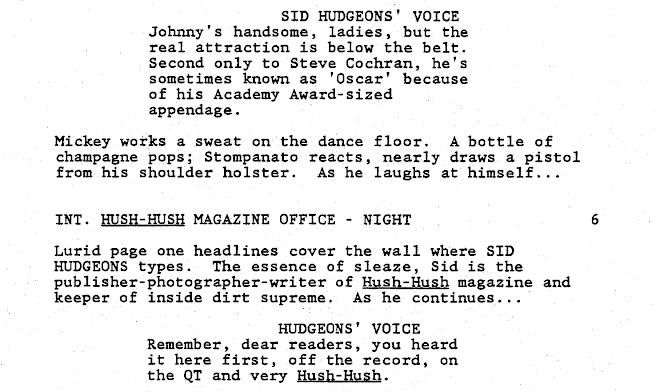




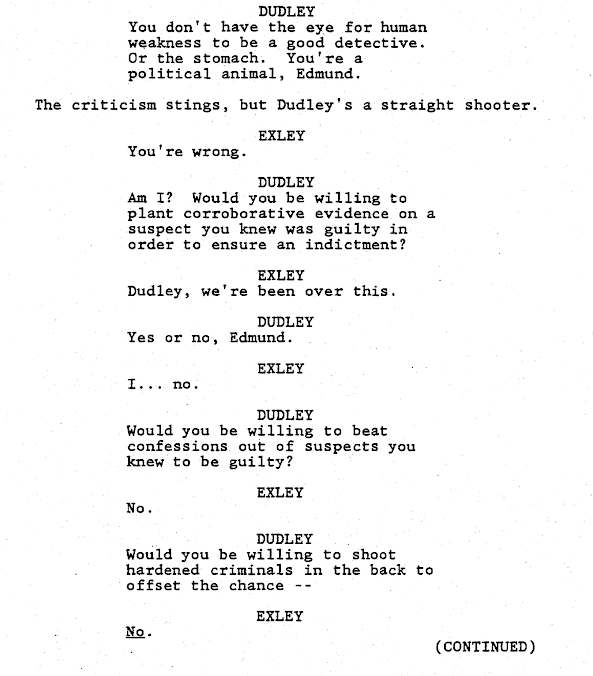

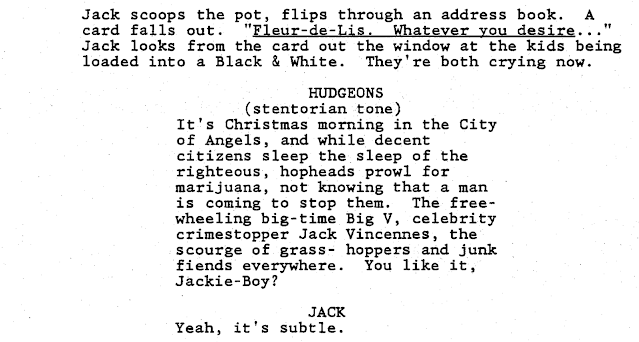

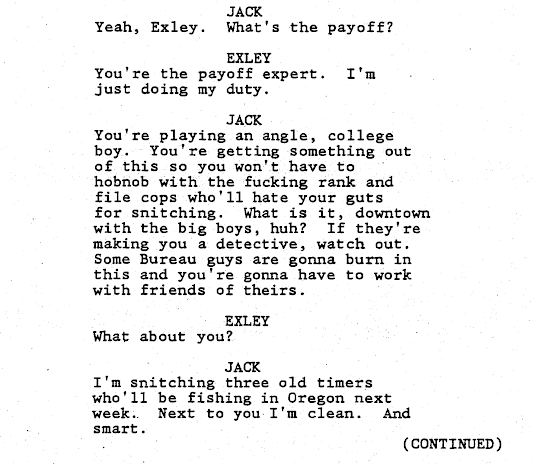

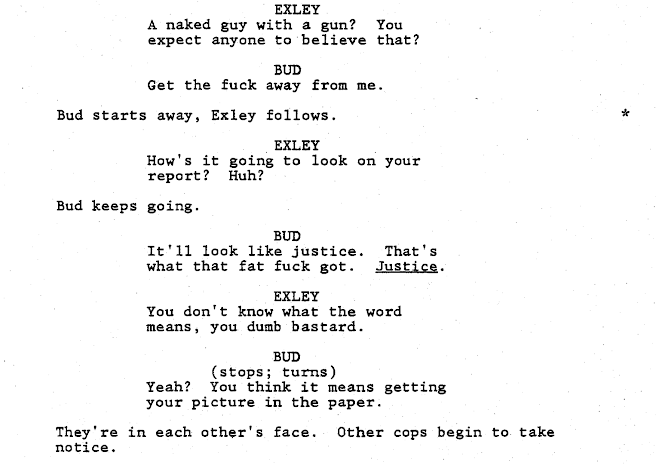

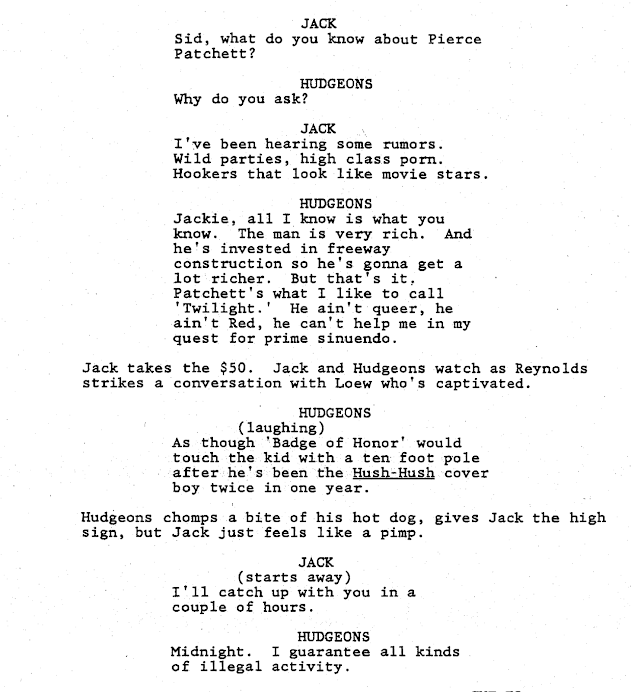

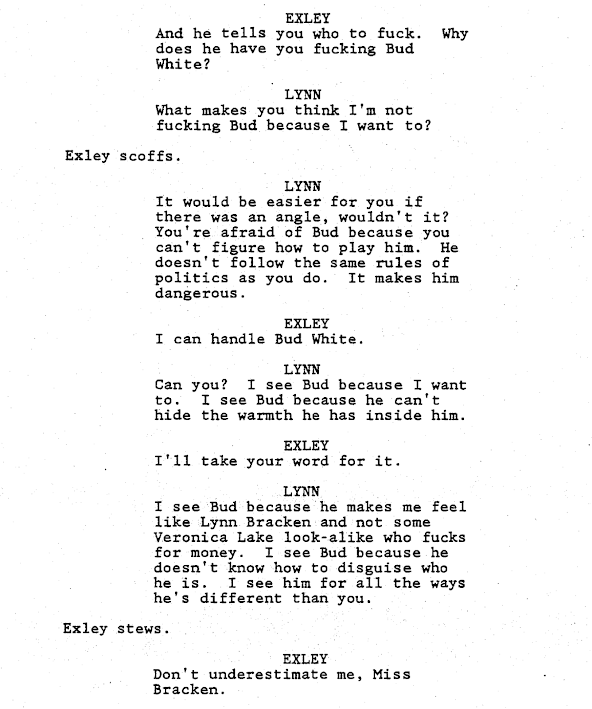

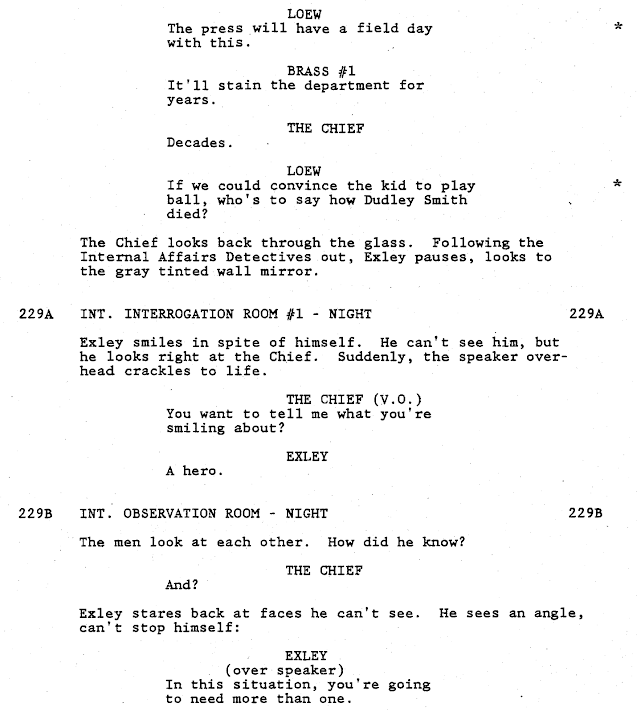

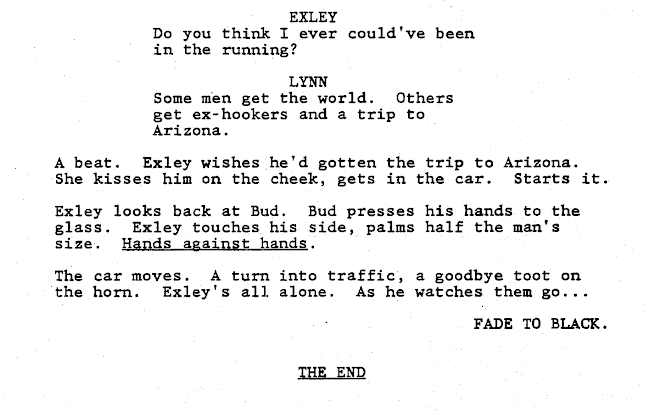




.jpg)